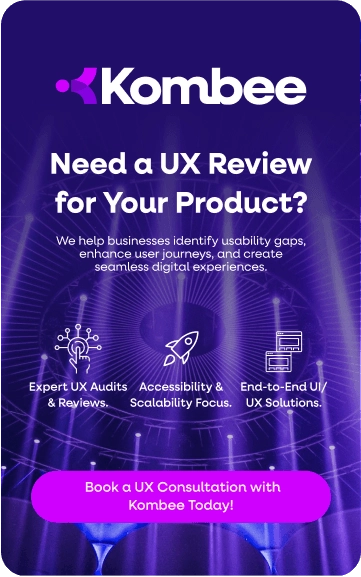Introduction
Ever wondered what keeps a hospital running smoothly, even in the most chaotic situations? It’s more than just skilled staff or advanced equipment behind the scenes, Healthcare ERP systems play a crucial role. In today’s fast-paced healthcare environment, hospitals must manage the patient care, finances, inventory, compliance and staffing all at once. That’s where modern ERP and medical software solutions come in. The global healthcare ERP market, valued at USD 6.66 billion in 2024, is projected to reach USD 12.71 billion by 2034. These systems are no longer optional but transforming healthcare operations from the inside out.
In this blog, we’ll explore how Healthcare ERP systems are tremendously changing the way hospitals and clinics operate.
What Are Healthcare ERP Systems?
Healthcare ERP systems are specialized software platforms that connect everything inside a healthcare organization like patient records, finance, HR, inventory and more into one single digital hub.
Instead of using separate tools that don’t talk to each other, a medical ERP keeps your entire operation aligned. So if you’re managing hospital admissions, tracking lab results, processing insurance claims or scheduling shifts all of it happens in one integrated system.
That means better coordination, fewer errors as well as faster decision-making all critical for high-quality patient care.
How Web Technologies Supercharged Medical ERP

Web technology has taken healthcare software solutions to the next level. It has helped organizations shift from bulky on-site servers to smarter, lighter, more flexible systems.
Here’s how:
Cloud Hosting for Scalability
With cloud-based systems healthcare providers can easily expand or adjust their IT capabilities based on patient volume, services offered or new regulations. Whether you’re running a major hospital or a rural clinic then cloud-powered enterprise software systems in healthcare offer the flexibility to grow without the high cost of physical infrastructure.
Real-Time Access to Critical Data
Web-enabled healthcare ERP systems provide up-to-date information on patients, lab reports, billing and also inventory. This means doctors can view results as soon as they’re available as well as staff can respond faster and patients experience smoother care.
Mobile Access for On-the-Go Healthcare
Modern medical ERP platforms work across mobile devices. Doctors can review patient files during rounds, then nurses can check schedules on the move and administrators can manage workflows from any location. This level of access supports telehealth, home care as well as rural healthcare delivery like never before.
Seamless System Integration with APIs
Using APIs healthcare software solutions connect easily with EHRs, telemedicine platforms, diagnostic tools, insurance portals and also more. This integration makes sure that data flows freely across departments thus improving collaboration and reducing manual entry.
If you are looking to get similar benefits, our Web App Development delivers tailored solutions to help streamline operations, boost efficiency, and scale for future growth.
Key Features That Make a Difference
Let’s take a closer look at the most impactful modules inside web-powered healthcare ERP systems:
Patient Management
These modules help manage everything right from appointments and medical histories to also billing and secure messaging. Patients can schedule visits, view test results as well as pay bills online all through a single portal.
Electronic Health Records Integration
Clinical data is updated in real time giving doctors a full picture of a patient’s health. With EHR integration, care decisions are faster and also more informed and more accurate.
Financial and Revenue Cycle Management
Billing, insurance claims and reimbursements are handled automatically. This leads to faster payments, fewer errors and better cash flow.
Inventory and Supply Chain Monitoring
From surgical gloves to life-saving medications, medical ERP tracks every item. Alerts are sent when supplies run low helping to avoid delays or disruptions in patient care.
Human Resource and Workforce Management
Shift scheduling, payroll processing, training and compliance are all managed from one place. Staff productivity increases while administrative headaches decrease.
Compliance and Data Security
Built-in security tools protect patient data while helping organizations meet HIPAA, GDPR and also other compliance requirements. Audit trails and role-based access controls keep everything transparent and secure.
Read More: Building Secure Web Applications: 5 Best Practices for Authentication and Authorization
Real Benefits You’ll Actually Notice
Still unsure whether it’s time to upgrade your systems? These are the tangible results organizations see after adopting enterprise software systems in healthcare:
- Less paperwork therefore more patient time: Automation takes over repetitive tasks so your staff can therefore focus on patient care.
- Fewer errors and faster treatment: Real-time data access supports quicker decisions as well as safer outcomes.
- Cost savings: Better inventory control, accurate billing and also fewer denied claims add up to major financial benefits.
- Regulatory peace of mind: Built-in compliance features reduce risk of violations or audits.
- Wider access to care: Cloud and also mobile features support telemedicine and rural outreach expanding your impact.
What’s Coming Next?
The future of healthcare ERP systems is intelligent, connected and more predictive than ever. Expect to see how artificial intelligence and machine learning play a bigger role like identifying health risks, forecasting patient volume and also even recommending treatment paths.
New healthcare software solutions will also integrate wearable tech, remote monitoring and genetic data to personalize care. And with growing concerns over data privacy, hybrid cloud deployments will offer both security and scalability.
Meanwhile API-first platforms will make it easier to plug in new features as technology evolves keeping your medical ERP system current without major upgrades.
Conclusion
If your organization is still using disconnected systems or paper records then now is the time to upgrade. Today’s healthcare ERP systems offer flexibility, speed as well as intelligence needed to make smarter decisions and streamline care. By adopting a modern medical ERP you set your organization up for better outcomes, improved financial management and higher patient satisfaction.
At Kombee, we specialize in building custom healthcare ERP solutions powered by reliable web technologies. The result? Scalable, secure systems tailored to your unique needs. Don’t just manage healthcare, transform it with Kombee’s enterprise software expertise. Your future-ready solution starts here.
Frequently Asked Questions
1. What is an ERP system in healthcare?
An ERP system in healthcare integrates various functions like patient records, billing, inventory, HR, and scheduling into a unified platform to improve operational efficiency, reduce costs, and enhance patient care and data management.
2. What is a web-based ERP system?
A web-based ERP system is an online software platform accessible via a web browser, allowing real-time data access, remote operations, and seamless integration across departments without the need for heavy on-premise infrastructure.
3. What are the 7 stages of implementation of ERP?
The 7 stages of ERP implementation are planning, requirements analysis, system design, development, testing, deployment, and ongoing support and maintenance.
4. How is digital healthcare changing the face of the medical industry?
Digital healthcare is transforming the medical industry through telemedicine, AI diagnostics, electronic health records, wearable devices, and personalized treatments, improving access, accuracy, patient engagement, and overall healthcare efficiency.






